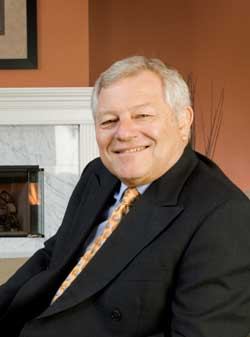Deal Guys
Essex’s roots lie with Marcus & Millichap, a giant firm that’s now best known as a large broker. That’s where Guericke’s roots lie as well. The accounting major at Southern Oregon College entered the real estate business in 1975 when he started working for Kenneth Leventhal and Co., a San Francisco-based CPA firm with a number of real estate clients. (The firm later merged with Ernst & Young.)
In 1985, Guericke moved over to Essex, which began in 1971 as a syndicator. The company grew by tapping into Main Street investors, going to them for the capital to buy apartments. When the real estate market crashed in the early 1990s, Essex went to Wall Street to purchase large pools of properties and loans. “The reality was we began to recognize was that it was easier to raise money on Wall Street than it was on Main Street,” Guericke says.
Other multifamily firms were coming to the same conclusion. As apartment companies started to go public, Merrill Lynch approached Essex and asked if it wanted to follow suit. After much discussion, Essex agreed, taking the principles of Marcus & Millichap into the public markets. “George Marcus is the guy who focused me on what makes a good real estate decision and the idea of being in markets that are supply-constrained,” Guericke says. “He was a guy that made me focus on how to make superior deals.”
The Essex team has made good deals for decades now. Last year, the REIT saw nearly 13 percent property revenue growth and produced a total shareholder return of 18 percent, beating the 12 percent average return of major equity REIT indices.
“The management team has been very good at allocating capital,” says Tony Paolone, an analyst who follows REITs as vice president of JP Morgan Securities. “Some REITs tend to have more of a reputation as good operators. Some have a reputation as owning the shiniest assets. Essex is good at allocating capital and getting higher returns on investments than a lot of its peers.”
To determine where to put that capital, Essex looks at research on job growth, single-family supply, multifamily supply, ratio of jobs to new units, projection of rental growth, and rental growth versus leading household income. It tracks 28 submarkets, but isn’t in all of them. “They’ve always based underwriting on good, solid fundamental research at the market level,” says Craig Leupold, a principal with Green Street Advisors, a San Diego-based independent research and consulting firm concentrating on publicly traded real estate securities.
This research then guides the company. “Other REITs tend to be much more development-oriented or acquisition-oriented,” says Michael Schall, senior executive vice president and COO for Essex. “They pick their strategy as to how they want to grow the company based on the real estate decision. We’re doing upfront economic research to try to identify markets.”
